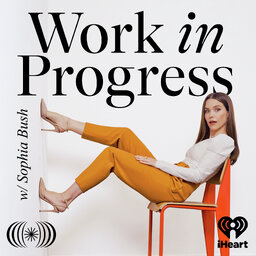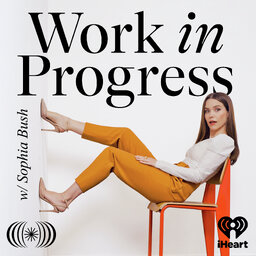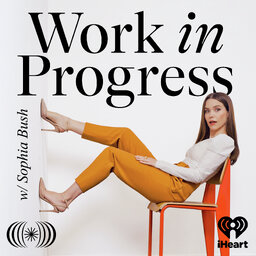Luvvie Ajayi Jones is a New York Times bestselling author, speaker and podcast host whose work combines comedy, justice, and as she says “professional troublemaking.” She joins Sophia on “Work In Progress” to discuss their shared love for Oprah, moving to the US as a young girl, when she embraced her inner activist, and much more.
 Work in Progress with Sophia Bush
Work in Progress with Sophia Bush


